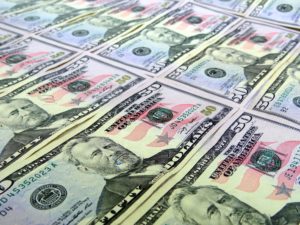Forgery


Making a false document can be accomplished by creating a new writing purporting to be the writing of another person, adding a fake endorsement to a genuine document, and materially altering a genuine document. Altering a document includes adding to, substituting in or deleting from a document. A material alteration is one that changes the legal effect of the writing.
Proof of Forgery in Virginia
To convict an offender of forgery in Virginia under Va. Code §18.2-172, the Commonwealth must prove that the document was falsely made or an already existing writing was materially altered. The Commonwealth must also prove the false making or material alteration was done with an intent to defraud. Intent to defraud means an intent to use the document to gain an advantage to which the offender was not entitled. The Commonwealth does not need to prove that the offender actually gained any advantage, only that he had the intent to obtain an advantage. Possession of a forged instrument and attempting to obtain value from it creates a presumption in Virginia that the person who possessed the document forged it.
Penalty for Forgery in Virginia
Forgery in Virginia under Va. Code §18.2-172 is a Class 5 felony . It is punished with up to 10 years in prison and a fine up to $2500.
Other Forgery Charges in Virginia
Uttering A Forged Writing
Uttering a forged writing is using or trying to use a forged writing. The crime, charged under Va. Code §18.2-172, is committed as soon as someone presents a forged writing with intent to defraud. The offender does not need to actually obtain any value to be convicted. A person can be convicted of uttering a forged document even if he is not the one who created it if he knew the document was forged, attempted to pass it to obtain a value, and had an intent to defraud. Merely possessing a forged writing can imply knowledge that the document is forged. Uttering a forged document (Va. Code §18.2-172) is a Class 5 felony, punished with up t

If the offender actually obtains value or money after uttering a forged document, he has committed larceny by false pretenses and can be charged with, and convicted of, both uttering and false pretenses. For more information on larceny by false pretenses in Virginia, click here.
Forgery by False Pretenses
Forgery by false pretenses under Va. Code §18.2-172 is obtaining the signature of a person to a writing by a false pretense or token with an intent to defraud. The writing must be a document that either was falsely made or a genuine document that was materially altered and either creates or avoids a legal liability. Forgery by false pretenses is a Class 5 felony, punished with up to 10 years in prison and a fine up to $2500.
Forgery of Public Seal
Forging a public seal or possessing an instrument for the forgery of a public seal is a Class 4 felony under Va. Code §18.2-169. It is punished with 2-10 years in prison and a fine up to $100,000.
Forgery of Public Records and Uttering Forged Public Records
Forgery of a public record Va. Code §18.2-168 is the the false making of a public record of or altering an existing public record with an intent to defraud. “Public record” is defined in Va. Code §42.1-77 as “recorded information that documents a transaction or activity by or with any public officer, agency or employee of an agency. Regardless of physical form or characteristic, the recorded information is a public record if it is produced, collected, received or retained in pursuance of law or in connection with the transaction of public business.” Forging a public record under Va. Code §18.2-168 is a Class 4 felony. It is punished with 2-10 years in prison and a fine up to $100,000.
Uttering a forged public document is also Class 4 felony under Va. Code §18.2-168. An offender can be charged with and convicted of both forging a public record and uttering the forged public record.
Counterfeiting
Counterfeiting (Va. Code §18.2-170) is a form of forgery in Virginia. Counterfeiting is making false money. An offender forges money under this statute by:
- forging any coin, note or bill current by law or usage in Virginia or any note or bill of a banking company with intent to defraud, or
- fraudulently making any base coin or a note or bill purporting to be the note or bill of a banking company when the company does not exist with intent to defraud.
Forging money in Virginia under Va. Code §18.2-171 is a Class 4 felony. It is punished with 2-10 years in prison and a fine up to $100,000.
Uttering and Possessing Counterfeit Money
Uttering false money under Va. Code §18.2-171 is intentionally trying to pass off counterfeit money for value. The statute criminalizes uttering, offering to sell, delivering or receiving forged money intending to utter it or have it uttered. Obtaining value for uttering the counterfeit money can be charged as both uttering of false money under under Va. Code §18.2-171 and false pretenses under Va. Code §18.2-178.
Va. Code §18.2-173 criminalizes knowingly possessing counterfeit money with the intent to pass it off as true. If the offender possessed less than 10 forged coins or notes at the same time, he has committed a Class 3 misdemeanor. This offense is punished with a fine up to $500. If the offender possessed more than ten coins or notes with the requisite intent, he has committed a Class 6 felony, punished with up to 5 years in prison. If the offender made the false money, he can be convicted of both making counterfeit money under Va. Code §18.2-170 and possessing counterfeit money under Va. Code §18.2-173.
Making or Possessing Counterfeiting Tools
Making a tool for forging or counterfeiting or altering a tool for the purpose of use in counterfeiting or forgery is a Class 4 felony under Va. Code §18.2-171. It is punished with 2-10 years in prison and a fine up to $100,000.
Possessing an instrument adapted or designed for forging or counterfeiting with intent to commit forgery is a Class 4 felony under Va. Code §18.2-171, punished with 2-10 years in prison and a fine up to $100,000.






